- Home
- Charlotte Bronte
Stancliffe's Hotel Page 3
Stancliffe's Hotel Read online
Page 3
'This is the room, sir,' said the waiter, throwing open a door in the middle of the gallery, and admitting me to a large apartment whose style of decoration, had I been a novice in such matters, would have burst upon me with dazzling force. It was as elegant in finish, as splendid in effect, as a saloon in any nobleman's house. The windows were large, lofty and clear; the curtains were of silk that draperied them, of crimson silk, imparting to everything a rosy hue. The carpet was soft and rich, exhibiting groups of brilliant flowers. The mantelpiece was crowned with classical ornaments - small but exquisite figures in marble, vases as white as snow, protected from soil by glass bells inverted over them, silver lamps, and, in the centre, a foreign time-piece. Above all these sloped a picture, the only one in the room: an Angrian peer in his robes, really a fine fellow. At first I did not recognize the face, as the costume was so unusual; but by degrees I acknowledged a dashing likeness to the most noble Frederick Stuart, Earl of Stuartville and Viscount Castlereagh, Lord Lieutenant of the Province of Zamorna. 'Really,' thought I, as I took in the tout ensemble of the room, 'These Angrians do lavish the blunt - hotels like palaces, palaces like Genii dreams. It's to be hoped there's cash to answer the paper-money, that's all.' At a table covered with decanters and silver fruit-baskets sat my unknown friend, the owner of the genteel conveyance. The waiter having retired, closing the door after him, I advanced.
William Percy tells Charles
Townshend of his exploits
It being somewhat dusk, and the gentleman's face being turned away from the glow of a ruddy fire, I did not at first glance hit his identity. However, I said,
'How do you do, sir? Glad to see you.'
'Pretty well, thank you,' returned he, and slowly rising, he tenderly took his coat-tails under the protection of his arms, and standing on the rug presented his back to the before-mentioned ruddy fire.
'O it's you, is it!' I ejaculated; for his face was now obvious enough. 'How the devil did you know that I was here?'
'What the d--l brought you here?' he asked.
'Why the devil do you wish to know?' I rejoined.
'How the devil can I tell?' he replied.
Here, our wits being mutually exhausted by these brilliant sallies, I took a momentary reprieve in laughter. Then my friend began again.
'In God's name, take a chair.'
'In Christ's name, I will.'
'For the love of Heaven, let me fill you a bumper.'
'For the fear of Hell, leave no heel-tap.'
'I adjure you by the gospels, tell me if it's good wine.'
'I swear upon the Koran, I've tasted better.'
'By the miracle of Cana, you lie.'
'By the miracle of Moses, I do not.'
'According to your oaths, sir, I should take you to be circumcised.'
'According to yours, I should scarce think you were baptized.'
'The Christian ordinance came not upon me.'
'The Mahometan rite I have eschewed.'
'Thou then art an unchristened Heathen.'
'And thou an infidel Giaour.'
'Pass the bottle, lad,' said my friend, resuming his seat and grasping the decanter with emphasis. He and I filled our glasses, and then we looked at each other. A third person, I think, would have observed something similar about us. We were both young, both thin, both sallow and light-haired and blue-eyed, both carefully and somewhat foppishly dressed, with small feet set off by a slender chaussure and white hands garnished with massive rings. My friend, however, was considerably taller than I, and had besides more of the air military. His head was differently set upon his shoulders. He had incipient light brown mustaches and some growth of whisker; he threw out his chest too and sported a length of limb terminating in boot and spur. His complexion, originally fair almost to delicacy, appeared to have seen service, for it was like my own much tan[ned], freckled and yellowed to a bilious hue with the sun. He wore a blue dress-coat with velvet collar, velvet waistcoat and charming white tights: I endued a well-made green frock and light summer jeans. Now, reader, have you got us before you?
The young officer, resting his temples on his hand and pensively filling a tall champagne glass, renewed the conversation.
'You'll be surprised to see me here, I daresay, aren't you?'
'Why yes; I thought you were at Gazemba or Dongola, or Bonowen or Socatoo, or some such barbarian station, setting slot-hounds on Negro-tracks, and sleeping like Moses among the flags on some river-side.'
'Well, Townshend,' said he. 'Your description exactly answers to the sort of life I have led for the last six months.'
'And are you stalled of it?' I asked.
'Stalled, man! think of the honour! Have you not seen in every newspaper: "The exertions of the 10th Hussars in the east under their Colonel Sir William Percy continue unabated. The efforts made by that Gallant Officer to extirpate the savages are beyond all praise. Scarce a day passes but five or six are hung under the walls of Dongola"? Then again: "A signal instance of vengeance was exhibited at Katagoom last week, by order of Sir William Percy. A soldier had been missing some days from his regiment stationed at that place. His remains were at length found in a neighbouring jungle, hideously mangled, and displaying all the frightful mutilation of Negro slaughter. Sir William instantly ordered out two of the fiercest and keenest hounds in his leashes. They tracked up the murderers in a few hours. When seized, the bloodstained wretches were sunk up to the neck in the deep mire of a carr-brake. Sir William had them shot through the head where they stood, and their bodies merged in the filth which afforded them such a suitable sepulchre." Eh, Townshend? is not that the strain?'
'Exactly so. But now Colonel, since you were so honourably occupied, why do I now find you so far from the seat of your glorious toil?'
'Really, Townshend, how can you be so unreasonable? The tenth Hussars - all Gods as they are, or God-like men, which is better - can't stand the sun of those deserts and the malaria of those marshes for ever. It has therefore pleased our gracious monarch to command a recall; that is, not by his own sacred mouth, but through the medium of W. H. Warner Esqre, our trusty and well-beloved councillor, who delivered his instructions to our General-in-Chief and Commander of the Forts, Henri Fernando di Enara, by whom they were transmitted to your humble servant.'
'And with alacrity you jumped at the reprieve.'
'Jumped at it? No; I perused the despatch with, I believe, my wonted coolness - awed, of course, by the sublime appellation of our Lord the King, in whose name it was penned - but otherwise I sweat not, neither did I swoon. It is not for us poor subalterns to feel either joy or grief, satisfaction or disappointment.'
'Well, Colonel, where are you going now?'
'Lord, Mr Townshend, don't be in such a hurry! Let one have a minute's time for reflection! I've hardly yet got over the anguish of soul that came upon me at Gazemba.'
'How? On what account?'
'All a sense of my own insignificance - a humbling to the dust, as it were. That organ of veneration is so predominant in my cranium, it will be the death of me some day. You know, being to go to Adrianopolis, it was needful to pass through Gazemba, and being at Gazemba, it was onerous to wait upon our Commander of the Forts at his pretty little villa there. So, having donned the regimentals over a check shirt for the more grace (it would have been presumptuous to appear in cambric while his Highness sported huckaback), I made my way to the domicile. Signor Fernando must be a man of some nerves to endure about his person such fellows as form the household of that garrison. The dirtiest dregs of a convict hulk would scarce turn out such another muster. Parricides, matricides, fratricides, sororicides, stabbers in the dark, blackguard bullies of hells, scoundrel suborners of false testimony: of these materials has he formed the domestic establishment of his country-seat. A forger in the disguise of a porter opened the door for me; a cut-purse wearing a footman's epaulettes shewed me to an ante-room; there I was received by one bearing a steward's wand who had been thrice convicted o
f arson; he gave my name to a Mr Secretary Gordon, who had visibly been hanged for murder but unfortunately cut down before the law had done its perfect work.
'Of course I sweat[ed] profusely by the time I had passed through this ordeal, and when at length Mr Gordon introduced me to a dismal little dungeon called a cabinet where sat Enara, my knees shook under me like aspen leaves. There was the great man in his usual attire of a gingham jacket and canvas trousers of more than Dutch capacity. Stock he disdained, and waistcoat: the most fastidious lady might have beheld with admiration that muscular chest and neck bristled with heroic hair. Between the commander's lips breathed a cigar, and in one hand he held a smart box of the commodity, fresh as imported from the spicy islands where springs the fragrant weed. With head a little declined, and brow contracted in solicitude respecting the important choice, the illustrious General seemed, at the moment I entered, to be engaged in picking out another of the same. Mark the noble simplicity of a great mind stooping to the commonest employment of an ordinary shop-boy! Having made his election, he handed the Havannah to a person who stood beside him, and whom till now I had not perceived, ejaculating as he did so, "Damn it! I think that'll be a good 'un!" "G--d, so it is!" was his companion's answer when, after a moment's pause, he had tried the sweet Virginian. I looked now at this second speaker. Townshend, it was too much! At Enara's chair back there stood a man in a shabby brown surtout, with his hands stuck in the hind pockets thereof, wearing a stiff stock, out of which projected a long and dark dried vinegar physiognomy shaded with grizzly whiskers and overshaded with still more grizzly hair. The fellow was so ugly, at first sight I thought it must be a stranger. A second glance assured me that it was General Lord Hartford. What could I do? The blaze of patrician dignity quite overpowered me. However, I made shift to advance.
' "How d'ye do, Sir William?" said Enara. "Recalled, you find? I regret the necessity, which doubtless will be a great disappointment to you." I ventured to ask in what respect? He looked at me as if I had put the question in Greek. "As a man of honour, sir, I should suppose - but most probably you are consoling yourself under the disappointment by the prospect of a speedy return. We shall see, sir; I will speak to the Duke in your behalf. Your services have given me much satisfaction." I bowed, of course, and then stood to hear what more was coming, but the General seemed to have said his say. Lord Hartford now grunted something unintelligible, though with the most dignified air possible, his underlip being scornfully protruded to support the cigar and his branded brow corrugated over his eyes with the sour malignant look of a fiend. He seemed to breathe asthmatically, I suppose in consequence of that wound he received last winter. Finding that there was no more talk to be had for love or money, I rose to go. In reply to my farewell genuflection Enara nodded sharply, and muttered a word or two about hoping to see me again soon and having a spot of special work cut out purposely for me. Hartford bent his stiff back with a stern haughty bow that made me feel strongly inclined to walk round behind him and trip up his heels.'
I laughed as Sir William closed his narration.
'Well, you do give it them properly, Colonel!' said I. 'A set of pompous prigs! I like to hear them dished now and then. And how did you get on at Adrianopolis? I suppose you saw the premier?'
'Yes, I went to the Treasury; and I'd scarcely got within the door of his parlour there before he began in his woman's voice, "Sir William, Sir William, let me hear what you have been doing. Give a clear account, sir, of your proceedings. General Enara's despatches are not sufficiently detailed, sir; they are too brief, too laconic. The government of the country is kept in the dark, sir - comparatively speaking that is - at a time, too, when every facility for obtaining information ought to be afforded it. I wish to know every particular concerning that late affair at Cuttal-Curafee." He stopped a minute, and looked at me. I looked at him, and sat down, after settling the cushion on my chair. The pause being a rather lengthened one, I remarked that it was a fine morning. "What?" said he, pricking up his ears. "The morning is charmingly cool and dry," was my answer. "Is it possible?" exclaimed Warner. "Sir, I say, is it possible that the trite remarks of the most indolent and vacant time-killer should be the first and only words on the lips of a man just returned from the active service of his king, in a country reeking with rapine and carnage and teeming with the hideous pollutions of pagan savages?" "What do you wish me to say?" I asked, taking up a pamphlet that lay on the table and glancing at the title-page. "Sir," said the premier, very lofty and impressive. "Sir, my time is valuable. If your business with me is not of so important a nature as to require immediate attention we will defer it for the present." Endeavouring to suppress a yawn, and slightly stretching my limbs - not inelegant, are they Townshend? - I replied: "Business, sir? Your honour, I hardly know what I called upon you for. It was merely, I think, to pass away an idle hour. Can you tell me what the newest fashions are? I'm quite out just now in dress, for really one sees little in that line at Cuttal-Curafee." "Sir," replied Warner, "I wish you a very good morning. Mr Jones will show you the door." "Good morning, sir," said I, and I left the Treasury as good as kicked out.'
'Well, and where did you go next?'
'I went to a perfumers, and bought a few trifles in the way of gloves and combs. On returning, whom do you think I met?'
'Can't guess.'
'Why, none other than the President to the Board of Trade.'
'What! Edward Percy?'
'Yes; he stopt in the street and began: "William! I say, William, who sent for you back? I know it for a fact, sir, that you sent up a puling memorial soliciting a recall. You did, sir, don't begin to deny it."
' "Not [I]," I answered. "Good morning, Edward! Charming seasonable weather! Take care of your lungs, lad - always pthisically inclined. I would recommend balsam of hore-hound - excellent remedy for pulmonary complaints! Good morning, lad!" And gracefully waving my hand, I passed on.'
Here a waiter came in with wax-lights and a supper-tray. Sir William invited me to partake of his roast chicken and oyster-sauce, but I declined, as I had ordered supper on my own account in a room below. We separated therefore for the night, after shaking hands in the Colonel's peculiar way - that is, a cool presentation of each individual's forefinger.
Charles Townshend and Sir William
Percy engage in a flirtation
The next morning rose as lovely and calm a day as ever ushered in the steps of summer. Wakened by the sunshine - I saw it streaming in through the stately windows of my chamber between the interstices of the carefully drawn curtains - my heart was rejoiced at the sight, and still more so when, on rising and withdrawing that veil, I beheld, in the lofty and dappled arch of a few marbled clouds, in the serenity and freshness of the air, a soft promise of settled summer. The storms, the fitful showers and chilly gusts, to which for the last month we had been subject, were all gone. They had swept the sky and left it placid behind them.
It took me a full half hour to dress, and another half hour to view myself over from head to foot in the splendid full-length mirror with which my chamber was furnished. Really, when I saw the neat figure therein reflected, genteelly attired in a fashionable morning suit, with light soft hair parted on one side and brushed into glossy curls, I thought, 'there are worse men in the world than Charles Townshend'. Having descended from my chamber, I made my way once again into the bustling, dirty inn-passage before described. It was bustling still, but not so dirty as it had been the night before, for a scullion wench was on her knees with a huge pail, scouring away for the bare life. A gentleman's carriage was at the door. Two or three servants were lifting into it some luggage, and a family party stood waiting to enter - a lady, a gentleman, and some children. The children, indeed, were already mounted behind, and a stout rosy Angrian brood they looked. Their mother was receiving the parting civilities of a fine, tall, showy woman, most superbly dressed, who had come sailing out of a side room to see them off. It was Mrs Stancliffe, the hostess of this great house. I wen
t up to her when the carriage had at length driven away, and paid my respects, for I had some little significance with her. She received and answered my attentions much in the tone and with the air of the Countess of Northangerland, only more civilly. Let not the Countess hear me, but it is a fact that she and the landlady bear a strong resemblance to each other, being nearly equal in point of longitude, latitude and circumference. Big women both! awful women! In temper, too, they are somewhat like, as the following anecdote will shew.
A public dinner being given a few months since by the Corporation of Zamorna to their Lord Lieutenant, the Earl of Stuartville, and to Sir Wilson Thornton, in honour of the eminent services rendered by those officers to their country in the war campaign, the whole conduct of culinary matters was of course consigned to the superintendence of Mrs Stancliffe. It so happened that, by some oversight or other, the individual with whom she had contracted for a supply of game failed in his duty. On the great day of the feast, the tables were spread in the court-house. Stancliffe's plate, conveyed over the way in iron chests, shone in tasteful arrangement and more than princely splendour on the ample boards. The gentlemen of the province were collected from far and near. The hour of six struck; the soup and fish were on the table.

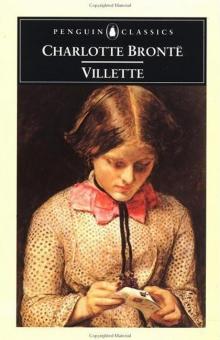 Villette
Villette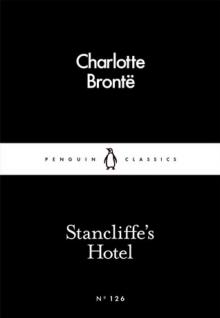 Stancliffe's Hotel
Stancliffe's Hotel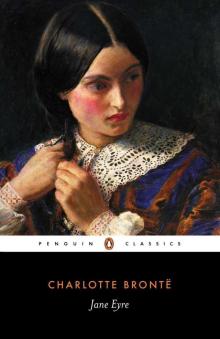 Jane Eyre
Jane Eyre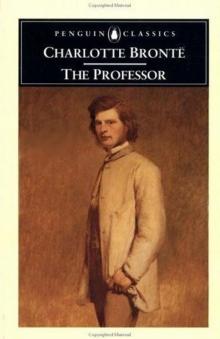 The Professor
The Professor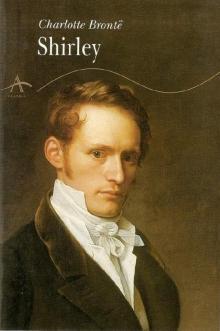 Shirley
Shirley The Complete Novels of Charlotte Brontë
The Complete Novels of Charlotte Brontë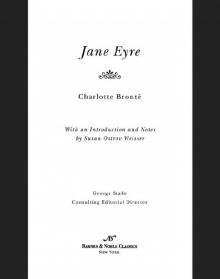 Jane Eyre (Barnes & Noble Classics Series)
Jane Eyre (Barnes & Noble Classics Series)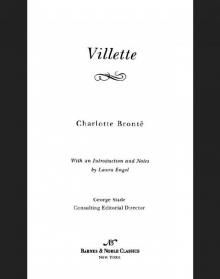 Villette (Barnes & Noble Classics Series)
Villette (Barnes & Noble Classics Series)